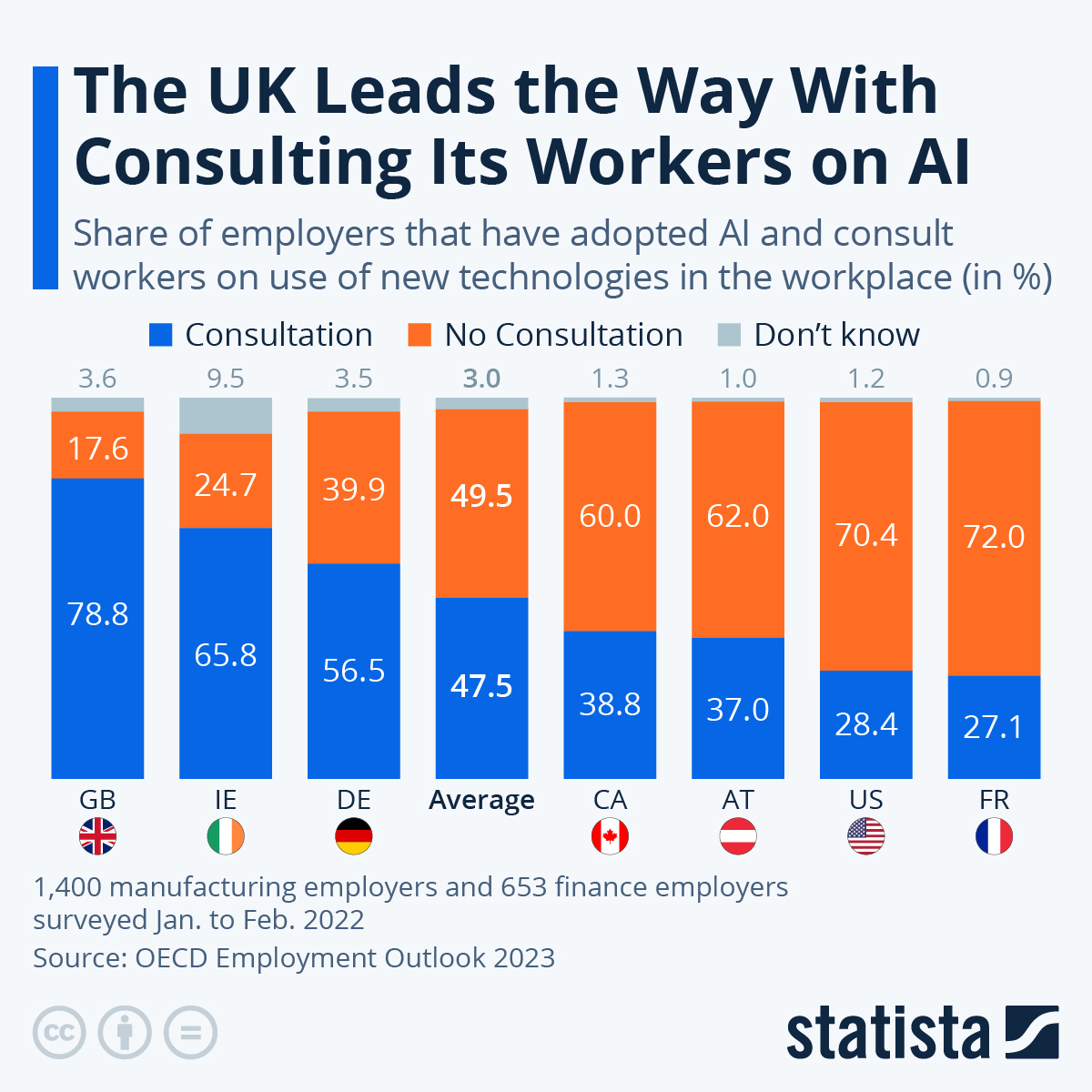The latest OECD report on artificial intelligence and the labour market focuses on the manufacturing and finance sectors, providing insight to perceptions around the main benefits and drawbacks of AI in the workplace.
Researchers found that the UK is leading the way when it comes to employers actively consulting workers or workers representatives on the use of the new technology. The UK was followed by Ireland and Germany, while the United States and France lagged further behind.
According to the paper, workplaces were more likely to report that AI could improve their performance and working conditions if their workers or worker representatives had been consulted on the topic: For companies in finance, there was as much as an 18 percentage point increase compared to workers in companies that did not consult workers or worker representatives, while in the manufacturing sector there was a 19 percentage points difference.
It is unclear whether this difference is due to the consultations encouraging employers to use AI in a more productive, fulfilling and safe manner, or whether simply the act of being consulted was enough to encourage increasingly positive perceptions of AI.
The most common topics discussed in these consultations across both sectors were on skills and training needs. In manufacturing, the second most common topic was the impact of working conditions, while in finance it was the use of data. In both sectors, potential job loss and impact on wages were the topics least likely to be discussed.
These talks often led to actionable results. According to the report, 60 percent of employers that consult workers or worker representatives in finance, and 65 percent of those that do the same in manufacturing, said that consultations resulted in at least one outcome, such as changes to/the adoption of guidelines or changes to/the adoption of an AI strategy. In both sectors, over a third of employers said that consultations resulted in a collective agreement.
Just two sectors (manufacturing and finance) were selected in order to limit the scope of research and to avoid the generalities that are often brought up in public discourse on AI. Since AI can take many forms and be combined with an array of technologies, its impact on workers is not uniform.
Finance and manufacturing offer a particularly high prevalence of AI compared to other sectors, and according to the writers, are interesting for between-sector comparisons since they have fairly different worker profiles.





















